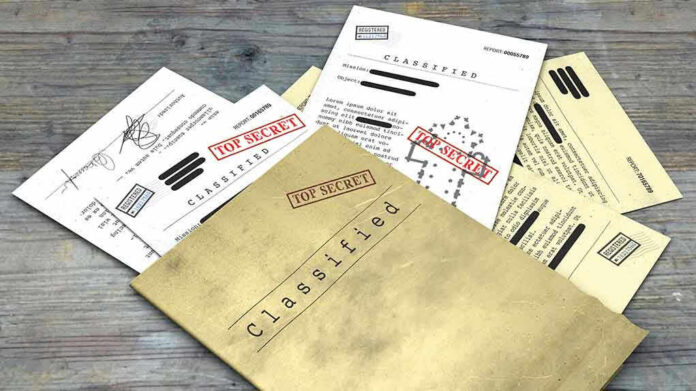President Trump’s administration has made the unprecedented move of directly asking federal judges to release sealed grand jury testimony from the Jeffrey Epstein and Ghislaine Maxwell sex trafficking cases, setting up a constitutional showdown over transparency that could expose high-profile figures across the political establishment.
At a Glance
- Trump administration formally requests release of Epstein-Maxwell grand jury transcripts despite legal precedent protecting such materials
- Attorney General Pam Bondi informed Trump his name appears in federal investigation files related to the Epstein case
- Ghislaine Maxwell offers to testify before Congress in exchange for presidential pardon or immunity
- DOJ clarifies grand jury materials contain only law enforcement testimony, not victim or suspect statements
- Congressional Republicans remain divided on whether to grant Maxwell clemency for her testimony
Trump Takes Direct Action for Transparency
President Trump has instructed his Department of Justice to petition federal judges for the release of grand jury testimony related to the most notorious sex trafficking case in recent American history. This bold departure from standard legal practice demonstrates Trump’s commitment to transparency, even when his own name reportedly appears in the investigation files. Attorney General Pam Bondi briefed the President about his inclusion in the materials, yet Trump continues pushing for full disclosure rather than seeking to bury potentially embarrassing information.
The DOJ has already released a memo clarifying that no evidence exists suggesting Epstein was murdered, contrary to widespread conspiracy theories. More importantly, the memo confirms there is no incriminating “client list” as many have speculated. The grand jury transcripts reportedly consist only of law enforcement testimony, not statements from Epstein, Maxwell, or alleged victims, which should put to rest much of the wild speculation surrounding this case.
Maxwell’s Calculated Gambit
Ghislaine Maxwell, currently serving her sentence for sex trafficking, has made a strategic offer to testify before Congress about her knowledge of Epstein’s network. Her attorney formally requested immunity and postponement of testimony pending her Supreme Court appeal. Maxwell’s legal team argues she cannot provide meaningful testimony while incarcerated and facing Fifth Amendment concerns about self-incrimination. This represents a classic attempt by a convicted criminal to leverage information for personal benefit.
The House Oversight Committee has subpoenaed Maxwell for testimony and records, but her conditional cooperation demonstrates the typical behavior of someone who spent years facilitating horrific crimes against children. Maxwell’s offer should be viewed with extreme skepticism, as she has every incentive to deflect blame and minimize her own culpability while potentially implicating others to secure her freedom.
Republican Leadership Divided on Strategy
Congressional Republicans find themselves split on how to handle Maxwell’s offer. Speaker Mike Johnson has taken the principled position of opposing any pardon for the convicted sex trafficker. However, Representative Thomas Massie and others suggest they might support clemency if it produces valuable testimony that could expose other perpetrators or enablers of Epstein’s criminal enterprise.
This division reflects a broader tension between the desire for justice and the pursuit of truth. While Maxwell’s testimony might reveal important information about Epstein’s network, rewarding a convicted child sex trafficker with clemency sends a dangerous message about accountability. The American people deserve answers, but not at the cost of undermining justice for the victims who suffered under Maxwell’s orchestrated abuse.
Constitutional Precedent and Legal Implications
The Trump administration’s request to release grand jury materials breaks with decades of legal precedent designed to protect the integrity of criminal investigations. Grand jury proceedings have traditionally remained sealed to protect witness privacy and prevent interference with ongoing investigations. Trump’s willingness to challenge this norm demonstrates his commitment to transparency over political self-preservation, even when he could personally benefit from keeping the materials secret.
The legal community has expressed concerns about the precedent this could establish for future cases involving politically sensitive investigations. However, the extraordinary circumstances surrounding the Epstein case, including his suspicious death and the public’s legitimate interest in understanding the full scope of his criminal network, may justify this unprecedented level of disclosure. The American people have a right to know how their justice system handled one of the most significant sex trafficking cases in history.
Sources:
Politico – Trump reiterates pardon authority, DOJ memo, political reactions
ABC News – Maxwell’s letter to Congress, legal strategy, congressional response
ABC News – DOJ clarification on grand jury transcripts











